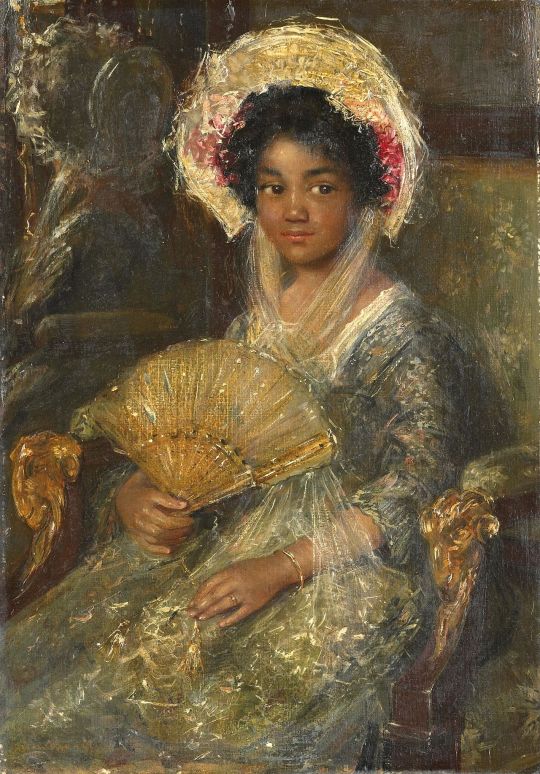Hello! I’m bretwalda-lamnguin (formerly bi-sanddancer) (he/they), Northumbria/NE England, UK. I mostly post about Tolkien’s writing, particularly the Children of Húrin and LOTR (usually Gondor).
Don't wanna be here? Send us removal request.
Text
Not that anybody asked, but I think it's important to understand how shame and guilt actually work before you try to use it for good.
It's a necessary emotion. There are reasons we have it. It makes everything so. much. worse. when you use it wrong.
Shame and guilt are DE-motivators. They are meant to stop behavior, not promote it. You cannot, ever, in any meaningful way, guilt someone into doing good. You can only shame them into not doing bad.
Let's say you're a parent and your kid is having issues.
Swearing in class? Shame could work. You want them to stop it. Keep it in proportion*, and it might help. *(KEEP IT IN PROPORTION!!!)
Not doing their homework? NO! STOP! NO NOT DO THAT! EVER! EVER! EVER! You want them to start to do their homework. Shaming them will have to opposite effect! You have demotivated them! They will double down on NOT doing it. Not because they are being oppositional, but because that's what shame does!
You can't guilt people into building better habits, being more successful, or getting more involved. That requires encouragement. You need to motivate for that stuff!
If you want it in a simple phrase:
You can shame someone out of being a bad person, but you can't shame them into being a good person.
107K notes
·
View notes
Text
“But the Elves are not wholly good or in the right….they were 'embalmers'. They wanted to have their cake and eat it: to live in the mortal historical Middle-earth because they had become fond of it (and perhaps because they there had the advantages of a superior caste), and so tried to stop its change and history, stop its growth, keep it as a pleasaunce, even largely a desert, where they could be 'artists' – and they were overburdened with sadness and nostalgic regret. In their way the Men of Gondor were similar: a withering people whose only 'hallows' were their tombs.” - JRR Tolkien, Letter 154
This letter is melting my brain, guys. There’s so much here that is relevant to the story of Aragorn and Arwen. I’m thinking about how Aragorn’s body is magically preserved after his death:
“Then a great beauty was revealed in him, so that all who after came there looked on him in wonder; for they saw that the grace of his youth, and the valour of his manhood, and the wisdom and majesty of his age were blended together. And long there he lay, an image of the splendour of the Kings of Men in glory undimmed before the breaking of the world.”
All of this “beauty,” “splendour,” and “glory” means nothing to Arwen, however. She flees in horror from the lifeless stone halls of the Silent Street, and she leaves Gondor and its creepy death rituals far behind. All she wants now is to go home to Lothlorien.
However, the Gondorian type of embalming is mirrored in Lothlorien, where elven magic “embalms” the past:
“Frodo felt that he was in a timeless land that did not fade or change or fall into forgetfulness. When he had gone and passed again into the outer world, still Frodo the wanderer from the Shire would walk there, upon the grass among elanor and niphredil in fair Lothlórien.”
Arwen returns to Cerin Amroth, presumably hoping to experience a magically preserved memory of Aragorn. But in the end, the elvish methods of fighting death and decay are as useless as the Gondorian ones:
“….and there is her green grave, until the world is changed, and all the days of her life are utterly forgotten by men that come after, and elanor and niphredil bloom no more east of the Sea.”
78 notes
·
View notes
Text

thanks for lending me your talons for this @kurahku
19 notes
·
View notes
Text

✏ MEDEA helps Jason
medea is a very interesting character in greek mythology, jason sucks and is one the most stupid men/character of any myths I've ever read. also i love how medea kills her brother, her kids, her step-uncle, but doesn't kil the dragon that gards the golden fleece. #vegan #Ikillmenbutnotanimals
358 notes
·
View notes
Text
Éowyn; White Lady of Rohan

"... clad in warm raiment and heavy cloaks, and over all the Lady Eowyn wore a great blue mantle of the colour of deep summer-night, and it was set with silver stars about hem and throat."
The Steward and the King; The Return of the King - J.R.R Tolkien
She is wearing Gondor fashion here, so not what she would wear in Rohan, seen in the colours and cut of the clothes. reminder to myself make a fashion post for Gondor late third age Rohan is here
Support me on Ko-Fi; early access drawings + WIP + COMM discounts
THIS PIECE WILL APPEAR SOMETIME IN THE NEXT FEW MONTHS AS A PRINT ON MY SHOP



201 notes
·
View notes
Text

Isabella / Young Woman with a Fan (1906) by Simon Willem Maris
956 notes
·
View notes
Text

Dragon Curse
66 notes
·
View notes
Text

Someone asked awhile back if I would draw Idril, I answered at the time saying yes, and don't feel like going back through my blog to screenshot for this. But here she is!
I'm in the Idril has prosthetics camp. I'm also dropping a sketch of Idril with running blades below the cut for enrichment. I bet she's unstoppable and unbeatable in a foot race.
Next up (and last for my current batch of requests) : Eärendil, Elwing, and Maglor
Look at her go!

200 notes
·
View notes
Text

1/3 of the Fellowship
The Dwarfs are very clearly inspired mainly from Old Norse, so that's the main reference for Gimli's dress. There's also some other influences, like some Bronze Age Mediterranean influences and Iron Age Eastern Europe.
To me Tolkien's elves are very high Middle Ages and Gothic, but for Sindar I mixed in plenty of Celtic and especially Irish influence, and based Legolas' dress heavily on Irish léine.
Boromir's dress I based on mostly Byzantine but also some Medieval Arabic influences as I did for Faramir.
4K notes
·
View notes
Text




very belated entry to @esotolkienweek for the prompt "forest"
For this I chose the fate of Húrin and Morwen from the Book of Lost Tales, one of the oldest versions of the children of Húrin. Here they’re known as Úrin and Mavwin.
The Book of Lost Tales version of the Children of Húrin ends on quite a strange note Húrin and Morwen; they do not reunite at the grave (though Morwen has a fascinating scene there which I have another post about) but instead haunt the woods outside Doriath together, mourning their children. I want to make a full board version but I liked this part so much I wanted to make this too!
x x
32 notes
·
View notes
Text

yeah so i may have meeting-on-the-turret-stairs'd aegnor and andreth. sorry
363 notes
·
View notes
Text

"...and Eärendil took her to his bosom; but in the morning with marvelling eyes he beheld his wife in her own form beside him with her hair upon his face, and she slept."
217 notes
·
View notes
Text
‘Tis Pity She’s a Whore: Where To Find It
Are you interested in this insane play about sibling incest, but frustrated by the fact that it’s so rarely performed? Here’s a quick roundup of audio and visual recordings of performances of the play, plus the full text. All sources are available for free on the internet unless otherwise noted.
Content warnings: sibling incest, murder, infanticide, violence against women, eye trauma, blood and gore, misogyny, references to sexual content.
Full text: http://public-library.uk/ebooks/51/100.pdf
Audio productions: 2001 BBC Radio. Eve Best as Annabella, Jude Law as Giovanni. (***recommended!) 2018 BBC Radio. Jessie Buckley as Annabella, Damien Molony as Giovanni. (can also be purchased on Google Play if free link breaks) LibriVox Full Cast Recording.
Video: The City of Liverpool College filmed stage performance. Jackalope Studios filmed stage performance. 12-part playlist on YouTube. (this is a weird-ass staging, but it’s still a full recording of the play so it goes on this list) ‘Tis Pity She’s a Whore (1971). Directed by Giuseppe Patroni Griffi, Charlotte Rampling as Annabella, Oliver Tobias as Giovanni. (a very loose adaptation of the play with little to none of the original text)
28 notes
·
View notes
Text
man the public defender discourse pisses me off so bad. yeah. yeah I do think that every single person deserves representation. yeah that includes people who *have* committed rape and murder and abuse. when I say every single person I mean every single person. if your idea of justice excludes one person it excludes everyone. next question
28K notes
·
View notes
Photo


Earendil
うわっまぶしっ
294 notes
·
View notes
Text

A young Anairë and Fingolfin 💙 I hc that she likes drawing and painting a lot
101 notes
·
View notes
